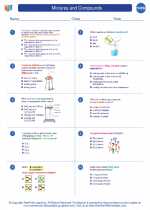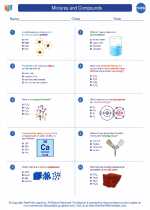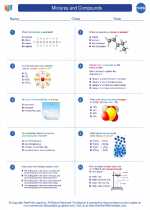Wave Action
Wave action refers to the physical and chemical processes that occur as a result of the movement of waves in bodies of water. This phenomenon is of particular interest in the field of chemistry as it affects the distribution and behavior of various substances in aquatic environments.
Key Concepts
- Wave Formation: Waves are formed by the transfer of energy from the wind to the water's surface. This creates disturbances that propagate as waves.
- Wave Types: There are several types of waves, including wind waves, tidal waves, and ocean waves, each with distinct characteristics and causes.
- Wave Interactions: Waves can interact with shorelines, seabeds, and other structures, leading to erosion, sediment transport, and the generation of coastal features.
- Chemical Processes: Wave action can contribute to the mixing of water masses, the dispersion of pollutants, and the dissolution of gases and solids in water.
- Biological Impact: Waves influence the distribution of marine organisms, the availability of nutrients, and the productivity of ecosystems.
Chemical Effects of Wave Action
Wave action has a variety of chemical effects on aquatic environments, including:
- Gas Exchange: Waves enhance the exchange of gases (e.g., oxygen, carbon dioxide) between the atmosphere and the water, influencing the overall composition of the water and supporting aquatic life.
- Particle Suspension: Waves can suspend and transport particles, such as sediments, nutrients, and pollutants, leading to the redistribution of these materials within the water column.
- Chemical Weathering: The mechanical action of waves, combined with the presence of dissolved substances, can lead to the erosion and dissolution of rocks and minerals along coastlines.
- Biogeochemical Cycling: Wave action contributes to the cycling of elements and compounds, such as carbon, nitrogen, and phosphorus, within marine and freshwater ecosystems.
Study Guide
To master the topic of wave action in a chemistry context, consider focusing on the following areas:
- Understanding the physical properties of waves and their formation mechanisms.
- Exploring the role of wave dynamics in shaping coastal landscapes and influencing sediment transport.
- Investigating the chemical processes associated with wave action, including gas exchange, particle suspension, and chemical weathering.
- Examining the ecological implications of wave-driven phenomena, such as nutrient cycling and ecosystem productivity.
- Applying knowledge of wave action to real-world scenarios, such as pollution dispersion and marine conservation efforts.
By mastering these concepts, you will gain a comprehensive understanding of wave action and its significance in the field of chemistry.
.◂Chemistry Worksheets and Study Guides High School. Mixtures and Compounds
Worksheet/Answer key Mixtures and Compounds
Mixtures and Compounds  Worksheet/Answer key
Worksheet/Answer key Mixtures and Compounds
Mixtures and Compounds  Worksheet/Answer key
Worksheet/Answer key Mixtures and Compounds
Mixtures and Compounds 

 Worksheet/Answer key
Worksheet/Answer key
 Worksheet/Answer key
Worksheet/Answer key

The resources above cover the following skills:
Chemistry II
Properties of Matter
Develop and use models to explain the differences between chemical compounds using patterns as a method for identification.
Use mathematical representations to quantify matter through the analysis of patterns in chemical compounds.